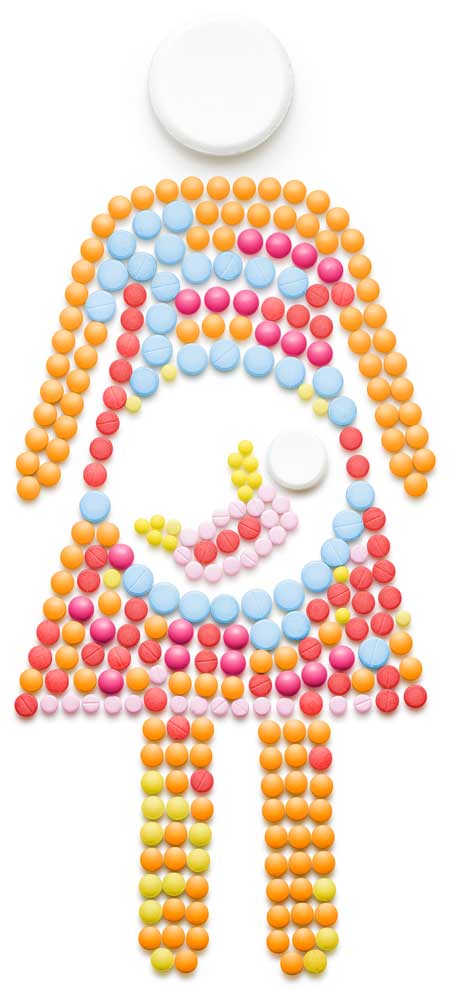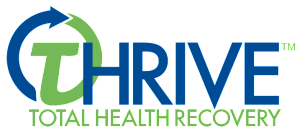About five percent of pregnant women use one or more substance that is addictive.

Research has shown that not only illicit drugs but also the use of tobacco, alcohol or prescription drugs during pregnancy can have dire health consequences for infants – and some of those consequences can last a lifetime.
Many substances that a pregnant woman uses passes easily through the placenta directly to the fetus. Addictive substances can result in addiction for the baby. Unfortunately, babies can go through a withdrawal process known as neonatal abstinence syndrome (NAS). Nicotine for example, can have concentrations at 15% higher levels in the infant than in the mother. Mothers who breastfeed and smoke can pass nicotine to their babies through breast milk, even if they never smoke near their baby.
Although most research on NAS has focused on the effects of opioids, data now shows that the use of alcohol, barbiturates, benzodiazepines and even caffeine used during pregnancy may cause an infant to have withdrawal symptoms. These symptoms may develop immediately or may take as long as 14 days after birth to become apparent.
The risk of stillbirth may be doubled or even tripled with prenatal use of marijuana, smoking tobacco, taking prescription pain relievers or using illegal drugs.
Research has been conducted on only about 10% of prescription medications to evaluate how the mother’s use might impact the fetus. But the risks from the substances that have been evaluated are troubling.

Every year an estimated 750,000 women use cocaine while pregnant. These women may deliver an infant with smaller head circumference, lower birth weight, and shorter length. Cocaine and its metabolites can remain in the infant for up to seven days after birth causing symptoms of either withdrawal or the active effects of the cocaine.
Even common over-the-counter medications should be used during pregnancy only when approved by a woman’s medical provider. A study completed by the Centers for Disease Control and Prevention (CDC) has shown a connection with certain birth defects with mothers who took non-steroidal anti-inflammatory drugs (NSAIDs) such as ibuprofen or naproxen as well as those who used opioid pain medications during early pregnancy. Opioids can be found in some cough medicines and include pain medications such as oxycodone, hydrocodone, codeine, and morphine. Those birth defects occurred less often in women who took acetaminophens such as Tylenol or Panadol.
It is important that women of child-bearing age be aware of the risks involved in using substances of any kind, especially if pregnant or planning to become pregnant.
For someone who is addicted and pregnant, immediate treatment for themselves and prenatal care for their child is important. Finding a quality drug treatment program who understands the challenges they face is essential.
At Gulf Breeze Recovery, we understand drug and alcohol addiction and recovery.
We know that each person with addiction faces individual challenges that cannot be addressed with a cookie-cutter treatment program. Our program offers holistic care with intensive individual counseling. If you or someone you care about, has an ongoing history of substance use and/or relapse, we can help.
If you or someone you care about, has an ongoing history of opioid or any other substance abuse and/or relapse, we offer hope and we can help. Contact us at Gulf Breeze Recovery or call: 833.551.2356 to speak to an addiction expert to learn more about our program that has helped so many people overcome their addiction, rediscover their dreams and embrace life.
We help people not just to survive, but to THRIVE®
 About Gulf Breeze Recovery:
About Gulf Breeze Recovery:
Gulf Breeze Recovery, unlike other treatment centers in Florida, is a non 12 step holistic drug and alcohol rehab that is changing the future of addiction treatment with their THRIVE® (Total Health Recovery) program focused on overcoming chronic relapse.
Gulf Breeze Recovery’s THRIVE® program is a non 12-step approach designed for those who are looking for a drug and alcohol treatment program to produce a different and positive result.
This non-12 step program allows you to drive beyond your addictions and promotes a new outlook on life.
We are licensed by the Florida Department of Children and Families, and our last audit scored 99.7! Also, we are gold certified by the Joint Commission.
Want to read more about Gulf Breeze Recovery’s non 12 step, holistic drug and alcohol rehab? Check out some of our latest posts:
Researchers Identify Role of Key Brain Signaling Protein in Alcohol Use Disorder
January 29, 2021
College Students Who Returned Home Due to Pandemic Drinking Less
January 29, 2021
Overdose Deaths Soar in the Midst of a Pandemic
January 27, 2021
Alcoholism Today in Seniors and Younger Generations
January 20, 2021
End Chronic Relapse and Start a New Life!
At Gulf Breeze Recovery we don’t want you to have just a great recovery, we want you to have a great life!





 About Gulf Breeze Recovery:
About Gulf Breeze Recovery:





